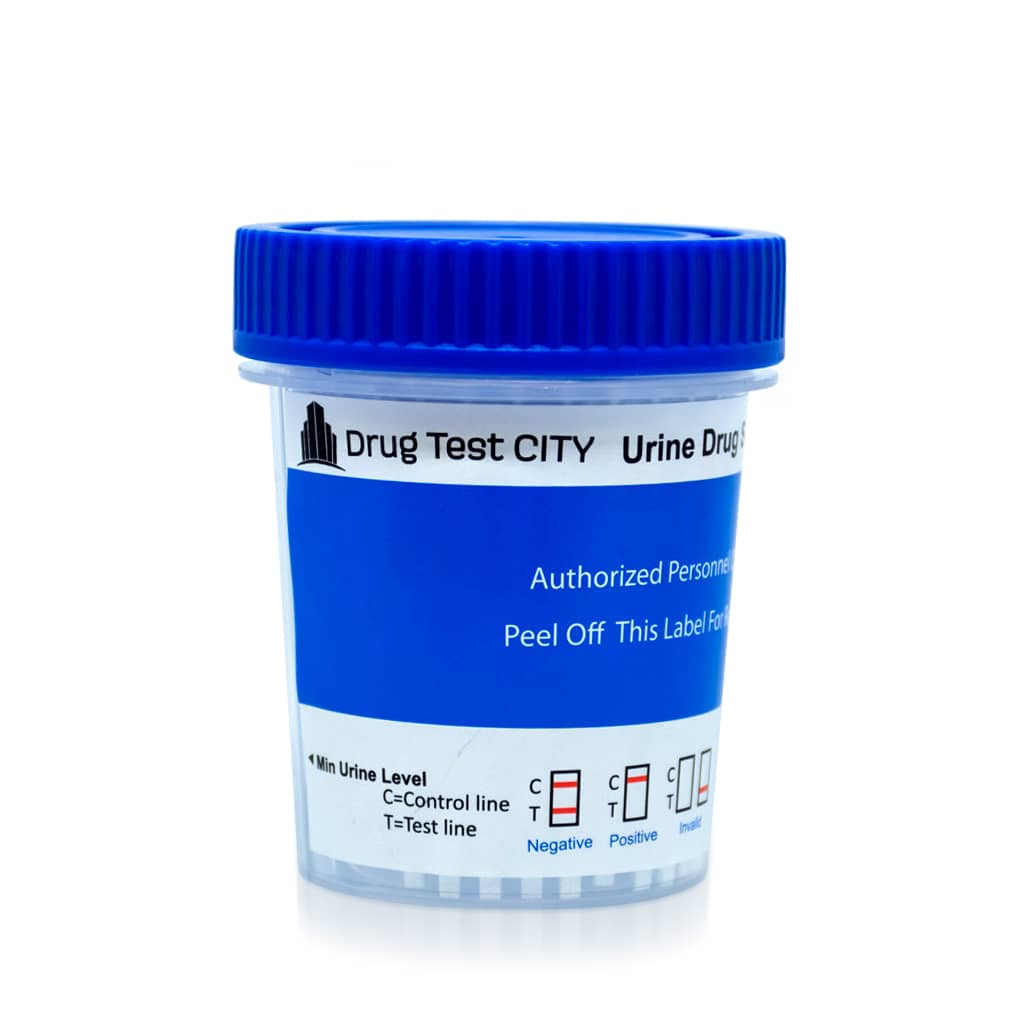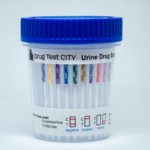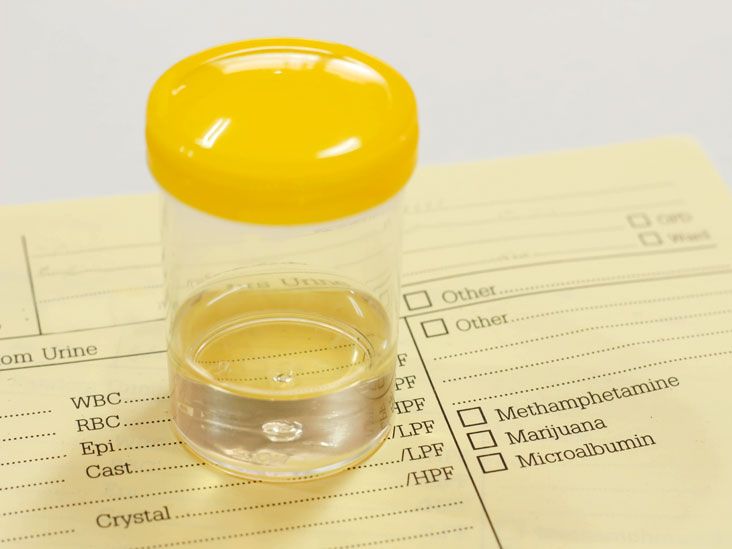
How much water it takes to pass a drug test depends on several variables. These include the test type, cutoff levels, amount of drug consumption, your personal creatinine levels, and the length of testing window.
It is possible to dilute urine enough to pass a drug test in some circumstances. However, quality standards and adulteration detection make it difficult for a subject to drink enough water to pass, but not too much so a determination of dilution is found.
The most common drug test adulteration technique is drinking water to dilute a urine sample. The variation in water expelled in urine from person to person makes it hard to detect and since the urine still comes from the subject’s body, temperature strips and observation witnesses cannot detect water dilution unless the sample is clear.
Can Drinking Water Pass a Drug Test?
A heavy user that has only abstained from using drugs for one day will not be able to sufficiently dilute their urine enough to pass a drug test without raising suspicions. However if the user has abstained from use for several days and the levels in concentrated urine are sufficiently low, low levels of water dilution can lower concentrations below the cutoff level.
For someone attempting to dilute their urine to pass a test the real question is “how much water can I drink before my urine is clear or the concentration of creatinine is below 20ng/ml.
Detecting Water Dilution in a Drug Test Sample
The first check for water dilution in a drug test is observing color. Urine samples can be light yellow, but a clear sample will raise suspicions.
Laboratories and drug tests with adulterant strips check for creatinine levels to determine if a sample is sufficiently diluted enough to mark as invalid. The cutoff level for creatinine is 20ng/ml. If your sample falls under this cutoff it will be marked as adulteration and usually considered a failed drug test.
How Drug Tests Work
Drug test contain antibodies that attach to metabolites in the urine of the person being tested. The test determines if the amount of antibodies which correlate to a drug in the urine are over or under a specified cutoff level.
Other testing methods determine the exact quantity of metabolites as well as several other levels such as creatinine, protein and pH. In these more advanced laboratory tests the creatinine level in the sample is a clear indication of water loading and the sample will either be corrected and normalized based on the creatinine levels in your urine or will be marked a failure for dilution outright.
A gas chromatography / mass spectrometry test will yield a result for the ratio of drug metabolites to creatinine levels, which is a more accurate number for determining drug levels since every person consumes a different amount of water.
Past a certain point urine dilution will raise suspicions or lead to a failed test. Clear urine is the most common reasons for raising suspicions. However, for someone that doesn’t drink the recommended daily allowance of water under normal circumstances drinking water can significantly lower the concentrations of metabolites in your urine without turning the urine completely clear and without failing an analysis for low creatinine levels.
Did You Know? The average person urinates between 35-50 ounces every day and makes an average of 4-10 trips to the bathroom.
Federal Recommendations for Drug Test Cutoff Levels
Most drug tests use the federal recommendations for cutoff levels in drug testing. Each drug exits your body at a different rate. The potency of different drugs vary, and for this reason some tests need to be more sensitive. Manufacturers consider these two variables and generally design rapid urine tests to detect drugs for a window of 3-7 days.
- THC 50 ng/mL
- COC 300 ng/mL
- OPI 2000 ng/mL
- AMP 1000 ng/mL
- MET 1000 ng/mL
- BZO 300 ng/mL
- MDMA 500 ng/mL
- MTD 300 ng/mL
- OXY 100 ng/mL
- BUP 10 ng/mL
- BAR 300 ng/mL
- TCA 1000 ng/mL
How Much Water Can I Drink Before Drug Testing?
The average healthy adult has a bladder that will comfortably hold 16 ounces or 2 cups of liquid. Water loading works by increasing the excess water in your body so the bladder will refill with excess water before the normal mixture of byproducts and the normal level of water used to expel these byproducts accumulates back into the bladder.
The timeframe of ingestion matters as much as how much water you drink. It takes between 45-120 minutes for ingested water to start pushing urine out of your body.
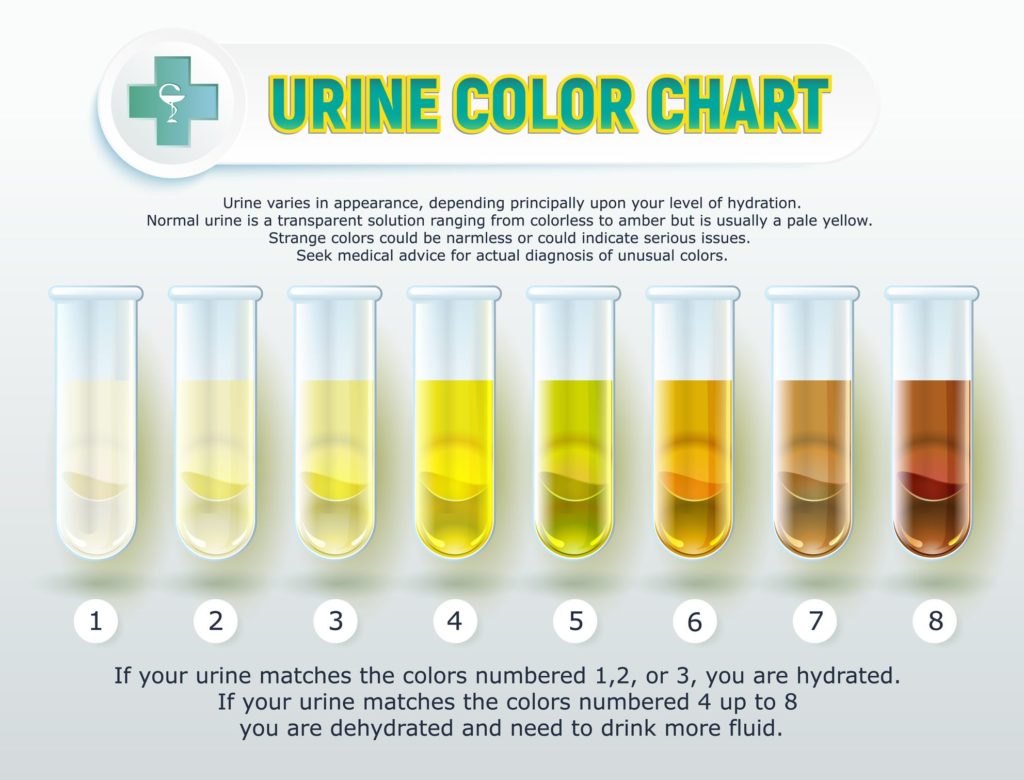
Since a drug test captures a single photograph of your urine content, the goal of someone trying to adulterate their urine by water dilution is to have the optimum ratio of excess water and normal urine at the time they submit their test.
It is hard to say exactly how much water you can ingest before your urine starts to come out clear because there are so many variables, but in a 1-2 hour timeframe approximately twice bladder capacity plus the amount of water your body is expelling through sweat and cellular process results in clear urine. Roughly 32 ounces of water in a 1-2 hour period will bring your urine to the point it will start to be completely clear.
A study in the Annals of Pediatric Edocrinology Metabolism found that the maximum amount of water a person should ever drink is between 27-33.8 ounces per hour. This is the maximum amount of water a healthy human body can process without causing harmful effects to electrolyte ratios.
Cutoff For Drug Test Dilution Test
When a donor provides a positive sample or a sample that is suspected to be diluted, it will normally be sent to a lab for further analysis. If a sample has less than .20ng/ml of creatinine, it is considered dilute and is automatic fail.
How much water will it take to reduce metabolite concentrations under cutoff levels?
Now that we know the level of each drug metabolite your urine must be under you need to know the level of the metabolite currently in your urine. You could send a urine sample off for a laboratory gas chromatography and mass spectrometry test but that would be prohibitively expensive. The best most people can do is guess.
In one study Urinary Elimination of 11-Nor-9-carboxy- 9-tetrahydrocannnabinol in Cannabis Users found that out of the 60s subjects admitted to the test they were evenly spread out between the groups of <50ng/ml, 50-150ng/ml and >150ng/ml. The studied showed that higher concentrations took much longer to eliminate detectable levels from their system.
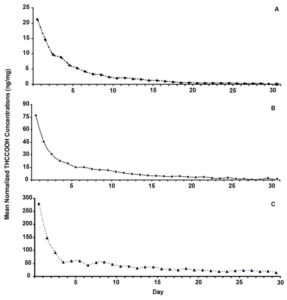
Users that were under the 50ng/ml cutoff at the beginning routinely started passing drug tests on the first or second day. All subjects that were under the 50ng/ml cutoff had eliminated all detectable THC metabolite (<5ng/ml) by day 8. It took 15 days for half the users between 50-150ng/ml to eliminate detectable THC metabolite. 80% of users that started over 150ng/ml level still had a detectable amount of THC in their urine at the end of 30 days.
The good thing for a user wanting to pass a drug test is that instant drug tests have a 50ng/ml cutoff. That means that light users will pass a normal test in 3-7 days and the average user that starts below 150ng/ml will be able to dilute their urine by half on the 2nd day and pass a test, which is the top of the range of how much water you can ingest without turning your urine totally clear.
Is Water Dilution Illegal or Unethical?
The god news is that the optimum water content of urine to have the best chances of passing a rigorous drug test is also around the normal recommended daily allowance for water. Since you do not want your urine to be totally clear you’re aiming for a pale straw coloration that is indicative of optimum water intake.
Most people do not drink the recommended amount of water, and it also causes their urine to have longer detection times than people that stay well hydrated.
If you drink so much water that your urine is clear and your body is passing urine with low levels of creatinine it is unethical and it could also lead to punishment depending on the circumstances of your drug test. Adulterating a drug test is illegal in many states and some prosecutors would make the argument that urine diluted by drinking an excessive amount of water is a clear case of adulteration.

